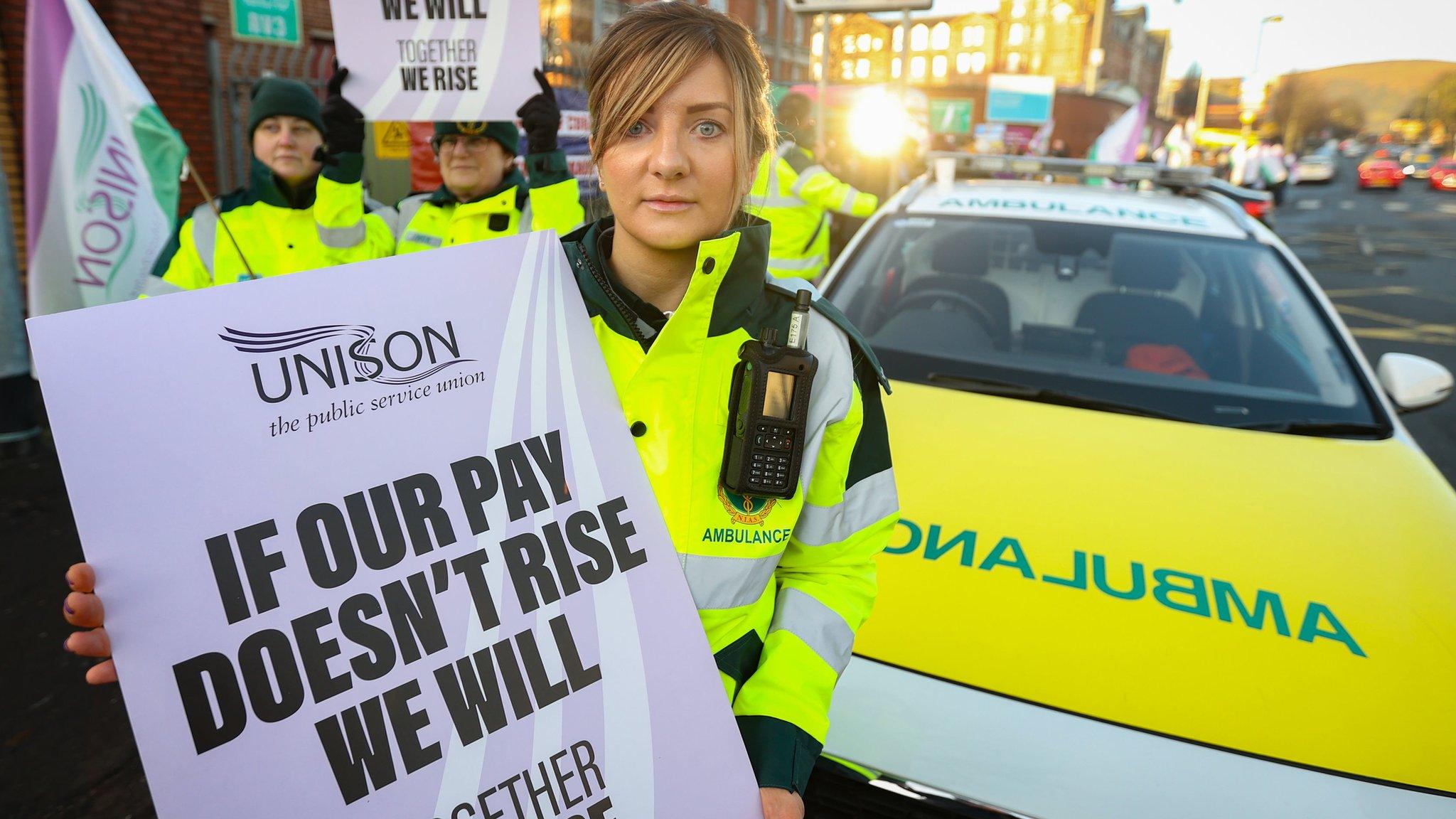NI health: Care packages face cuts amid budget pressures
- Published

Health currently takes 50% of the budget in Northern Ireland
Fewer domiciliary care packages, nursing and residential care placements are likely as a result of a funding gap in NI's health budget.
The Health Department has reiterated warnings of a significant budget shortfall during briefings with party health spokespersons.
In projections, health officials say in spite of efficiency savings of £250m, a further £300 million is still required.
Without it, the department warned "high impact spending cuts" were inevitable.
These could include reductions in:
Payments for support services in the community and voluntary sector
Expenditure on community aids and adaptions for clients living in their own homes;
Education and training places;
In-inhouse elective work adding to waiting lists;
Domiciliary care packages
Another potential cut is the closure of some community facilities.
The Department of Health has said there are channels to generate income, such as continued car parking charges (£10m), prescription charges (£20m) and charging for domiciliary care (£15m).
It's thought that each £15m generated would enable about 30,000 assessments, diagnostic tests or procedures for patients with cancer or time-critical conditions.
Health officials said as health currently took 50% of the local budget it was hard to provide protection without "significant impacts on other departments".
In its 2022 report, the Fiscal Council showed NI per capita health spending falling below England for the first time in 2022/23 based on the draft budget.
As it is generally accepted that Northern Ireland has greater need, the Department of Health stresses that spending would need to be higher here to provide the same level of services.
Related topics
- Published8 January 2023

- Published22 February 2023
